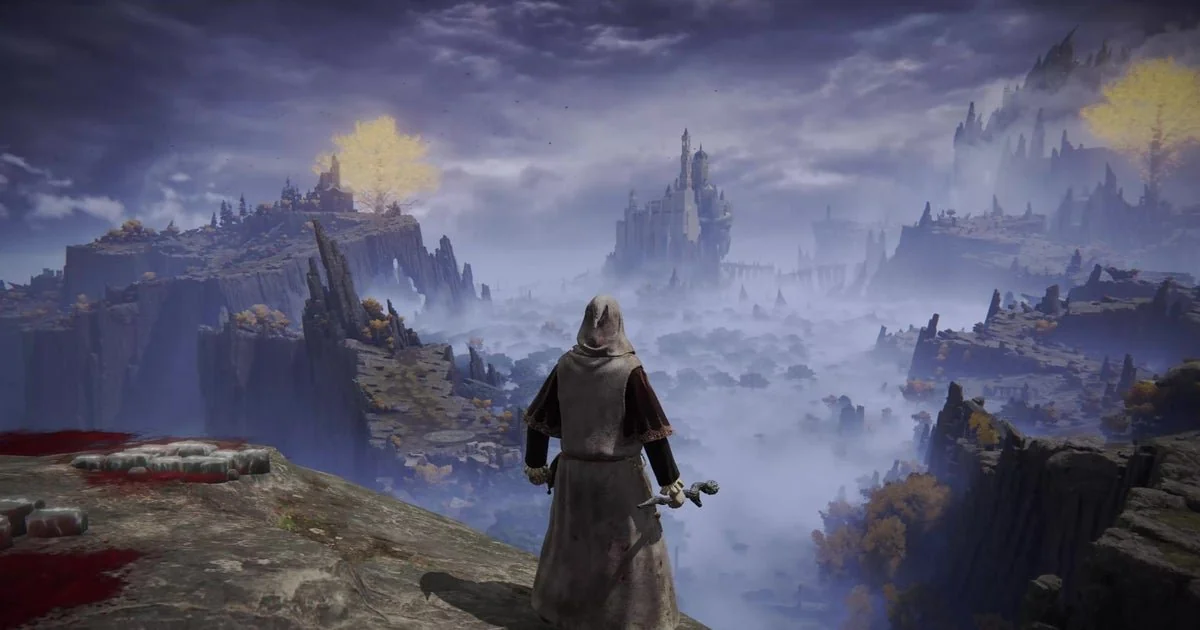The Evolution of RPGs and FromSoftware’s Influence
Role-playing games (RPGs) have a rich history that dates back to the late 1970s, originating from tabletop gaming. Early RPGs were characterized by turn-based combat, intricate storylines, and character customization. Over the years, the genre has undergone significant transformations, particularly with the advent of technology, allowing for more immersive experiences. As gaming consoles advanced, so did the complexity and scope of RPGs.
FromSoftware, founded in 1986, has played a pivotal role in redefining RPG mechanics, particularly in the realm of action-oriented gameplay. Title releases such as the iconic “Demon’s Souls” laid the groundwork for a new direction within the genre. This was followed by the highly acclaimed “Dark Souls” series, which introduced a challenging combat system accompanied by a unique, interconnected world design. The model established by Dark Souls not only became a defining trait of FromSoftware’s games but also set a new benchmark for RPG development, inspiring other developers to adopt similar design philosophies.
The evolution continued with “Bloodborne,” which took the hallmark features of previous games and combined them with fast-paced combat and a gothic atmosphere, further pushing the boundaries of RPG storytelling and interaction. This design approach encouraged players to embrace risk and develop their skills, fostering a sense of achievement unmatched in other RPGs.
These innovative elements ultimately led to the creation of “Elden Ring,” which has garnered massive acclaim for its ambitious open-world design and rich lore. By incorporating lessons learned from its predecessors, FromSoftware has not only elevated its position in the RPG landscape but has also set a new standard for the genre, influencing both the expectations of gamers and the direction of future role-playing games.
Innovative Gameplay Mechanics in Elden Ring
The gameplay mechanics in Elden Ring represent a significant evolution in the RPG genre, integrating innovation with traditional elements to create a unique experience. One of the primary features distinguishing this game is its expansive open-world design, which allows players to explore vast landscapes filled with diverse environments, creatures, and hidden secrets. Unlike many conventional RPGs that often confine players to linear story paths, Elden Ring’s world encourages exploration, allowing players to venture off the beaten path and discover unique challenges and rewards.
Combat in Elden Ring is another area where innovation shines. The game blends traditional RPG combat mechanics with strategic depth, providing various options to suit different playstyles. Players can engage in melee combat, utilize magic, or adopt stealth tactics, encouraging a versatile approach to encounters. The fluidity of combat, combined with the intimate knowledge gained from challenging opponents, captivates players, compelling them to refine their tactics continually. This dynamic fighting system is accentuated by FromSoftware’s signature difficulty, where overcoming obstacles requires both skill and perseverance, enabling a rewarding sense of accomplishment.
Moreover, Elden Ring places significant emphasis on player freedom, allowing individuals to forge their paths within the game. Players can customize their characters, dictate their abilities, and choose how to approach various quests and encounters. This flexibility not only enhances the gaming experience but also empowers players, creating a deep sense of ownership over their journey. By seamlessly integrating exploration and combat, Elden Ring transcends conventional RPG structures, redefining how players interact with the game world. The result is an immersive experience that resonates strongly with fans of both RPGs and the broader gaming community, marking Elden Ring as a modern benchmark in the genre.
Narrative and World-Building in Elden Ring
Elden Ring demonstrates an impressive depth of narrative and world-building that has set a new standard for role-playing games (RPGs). One of the most notable aspects of its storytelling is the collaboration between FromSoftware and renowned author George R.R. Martin, renowned for his intricate narrative styles. This partnership has resulted in a richly woven lore that serves as the backbone for the expansive universe of Elden Ring, creating a world intensified by myth and history. Players encounter a multitude of interconnected stories that provide insight into the game’s complex characters and their motivations.
Environmental storytelling plays a pivotal role in immersing players within the world of Elden Ring. Each region is meticulously designed, showcasing ruins, artifacts, and landscapes that tell stories of the past. This approach encourages players to explore and piece together the history of the land, tapping into the game’s lore without heavy-handed exposition. As players traverse vast terrains, they can encounter remnants of previous battles, ancient civilizations, and cryptic messages left behind, enhancing the atmospheric experience and creating a sense of discovery that is central to the RPG genre.
Character interactions further enrich the narrative, offering opportunities for players to engage with a diverse cast. These characters frequently reveal lore through dialogue, while their individual quests and backstories invite players to delve deeper into the socio-political fabric of the Elden Ring universe. This level of engagement elevates the narrative, allowing players to make choices that affect the storyline and relationships within the game, emphasizing the importance of player agency. Each decision can lead to consequences that resonate throughout the overarching story, ensuring that players feel an integral part of this living world.
This intricate balance of lore, environmental detail, and character depth showcases how Elden Ring redefines narrative and world-building in modern RPGs, establishing a compelling experience that resonates with players long after they’ve stepped into its expansive realm.
Community Reception and Impact on Future RPGs
Upon its release, Elden Ring garnered significant acclaim from both critics and fans alike, marking a watershed moment in the realm of role-playing games (RPGs). The game was praised for its expansive open world, intricate storytelling, and innovative gameplay mechanics, drawing from the rich legacy of FromSoftware’s previous titles while simultaneously carving out a new path for the genre. This blend of familiar elements and fresh concepts resonated deeply with players, leading to widespread enthusiasm and a vibrant community engagement.
Fans embraced the game’s design choices, particularly its vast landscapes and freedom to explore, which stood in contrast to the more linear designs often seen in contemporary RPGs. This positive reception underscores a growing appetite for immersive experiences that prioritize player autonomy and environmental storytelling. The community’s feedback on Elden Ring has, therefore, set a new standard for what players now expect from RPGs, encouraging developers to prioritize innovation and player-driven narratives in their future titles.
Moreover, the impact of Elden Ring extends beyond immediate player reception. It has sparked discussions within the industry regarding the evolution of RPG design. Game designers are increasingly considering how Elden Ring’s successful integration of challenging gameplay, lore-rich environments, and cooperative elements can influence their upcoming projects. As a result, the title is likely to inspire a new generation of RPGs that strive to meet or exceed the benchmarks established by FromSoftware’s latest creation.
Looking ahead, the legacy of Elden Ring may shape the trajectory of the RPG genre for years to come. Its success has elevated expectations, prompting both emerging and established developers to refine their approaches to storytelling and gameplay mechanics. As the influence of Elden Ring reverberates through the gaming landscape, it remains clear that we are witnessing the setting of a modern standard in RPG development that will continue to influence future titles.


Leave a Reply